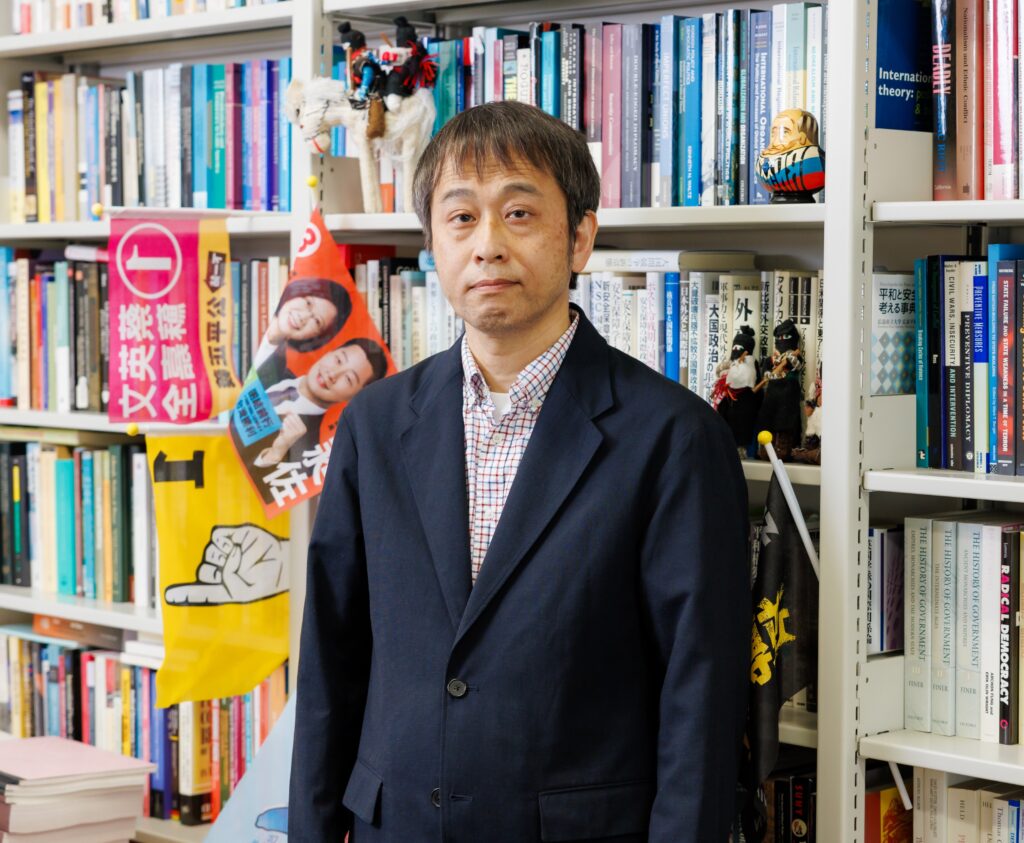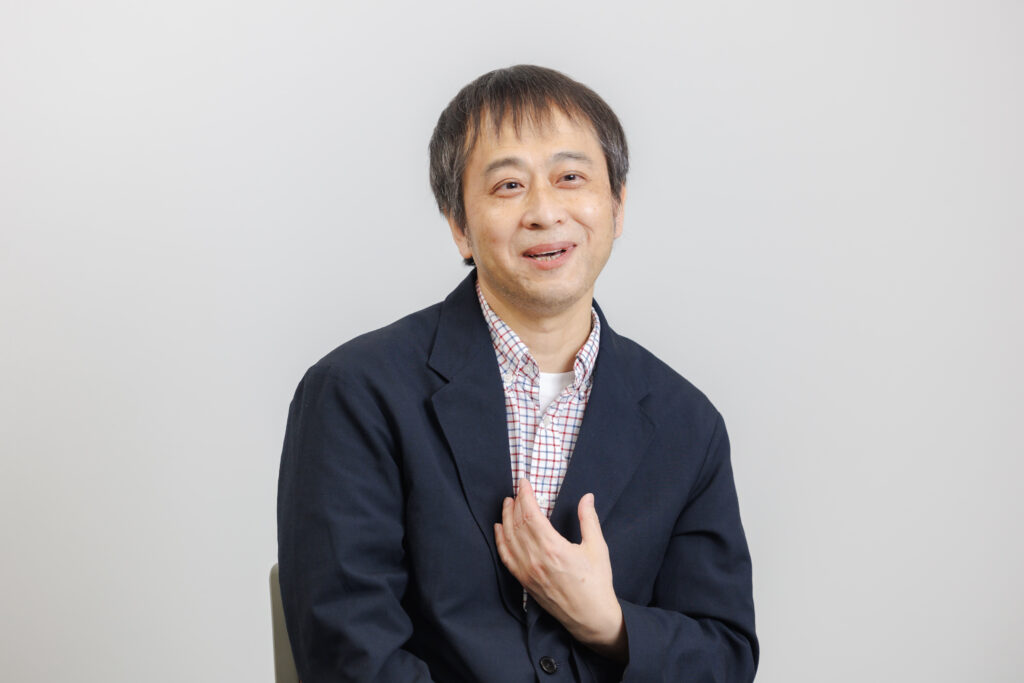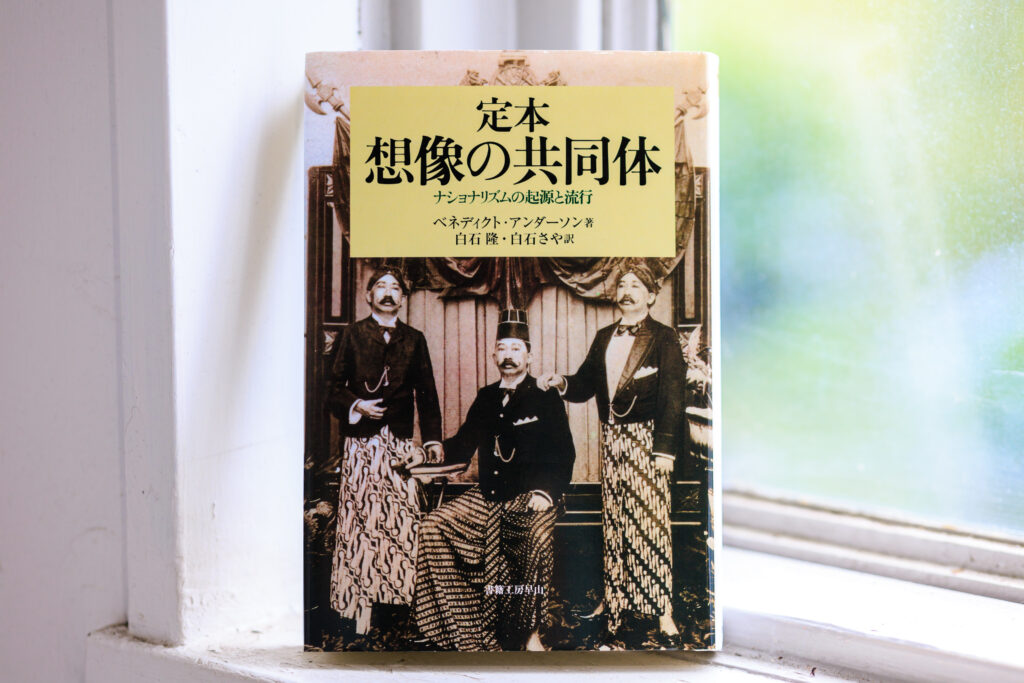
Professor Takeshi Kishikawa of the Faculty of Global Studies is an expert in comparative politics, with a specialization in democratization. Here, he discusses democratization processes, election methods, and the appeal of engaging in hands-on fieldwork.
Comparative politics employs the comparative method to analyze and formulate theories regarding political phenomena. My expertise lies in democratization, the political transition to a democratic system that reflects the will of the people. It is important to note, however, the process of democratization varies from country to country.
In my research, I focus on Mexico where the collapse of a one-party system led to a series of elections, and the relatively peaceful establishment of a democratic system. Taiwan underwent a similar transformation.
On the other hand, the democratization process has faced obstacles in other countries, and resulted in civil war. For instance, democratization efforts in Iraq and Afghanistan were hindered due to the deep involvement of the US and the rushed overthrow of the government.
Comparing diverse countries provides insight into the reasons for the success or failure of the democratization process.
Vicariously experiencing the politics of other countries

I place high value on fieldwork in my research. Personally visiting Mexico and other Latin American countries, I engage with local researchers and gather firsthand accounts, enquiring into the facts of the matter. I often visit these countries during times of election.
Two countries may use different election methods even if they are both democracies—and the influence of the countries’ various cultures can be discerned in these differences.
In addition to writing up the results of my research as academic papers, I try as far as possible to share my findings with students through lectures. I record video of elections in the countries I visit, and show them to my students so they can get a sense of the prevailing atmosphere; I also invite my students to accompany me on my fieldwork.
In Japan, there is a general lack of passion for politics. But in fact, apart from France, it is a similar situation across large swathes of Europe, too. And those countries where enthusiasm for politics is in short supply share a point of commonality: instead of a presidential system, they operate a parliamentary cabinet system in which the administrative authority is chosen by parliament.
Indeed, one of the attractions of comparative politics is that knowing more about other countries helps us better understand the distinguishing features of Japanese politics, too.
Knowledge of politics is indispensable for international business
When engaging in international trading and other forms of business, it is essential to have a strong understanding of the politics of the country you are trading with. NGOs, too, can only provide effective support by understanding the host country’s politics.
In other words, being well informed about politics is a significant advantage when engaging in global business or international cooperation. After graduating, many of my students venture into international careers. I take care to educate them in ways that enable them to apply their knowledge to their professional lives.
Where possible, I try to use local languages when carrying out fieldwork. I personally believe that democratic forms of government are preferable; as such, it can be painful conversing with people who face difficulties in non-democratic countries.
The political systems in these countries do not correspond to the wishes of the people who live there—and I believe that communicating this harsh reality is my responsibility, too.
I am currently also engaged in comparative research into China’s influence on Latin American countries. This is a joint research project comprising ten or so researchers, and we all intend to visit the region in the near future.
This is a research topic that has garnered attention from various academic fields—I am highly motivated to ensure this research is meaningful.
The book I recommend
“Imagined Communities”
by Benedict Anderson, Japanese translation by Takashi Shiraishi and Saya Shiraishi, Shosekikobo Hayama

Benedict Anderson was a sociologist who identified the importance of modernization and the growth of the media on the nationalism and the shared consciousness required to form nations. I read this book at university, and I remember being utterly persuaded by its arguments—it showed me how fascinating the social sciences could be.
-
Takeshi Kishikawa
- Professor
Department of Global Studies
Faculty of Global Studies
- Professor
-
Professor Takeshi Kishikawa graduated from the Department of Hispanic Studies, Faculty of Foreign Studies, Sophia University, and completed his doctoral coursework at the university’s Graduate School of Foreign Studies. After working as an assistant at the Iberoamerican Institute, Sophia University, as a visiting researcher at El Colegio de México, and as a lecturer, assistant professor, and professor at the Faculty of Foreign Studies, Sophia University, he was appointed to his current position in 2014.
- Department of Global Studies
Interviewed: June 2023